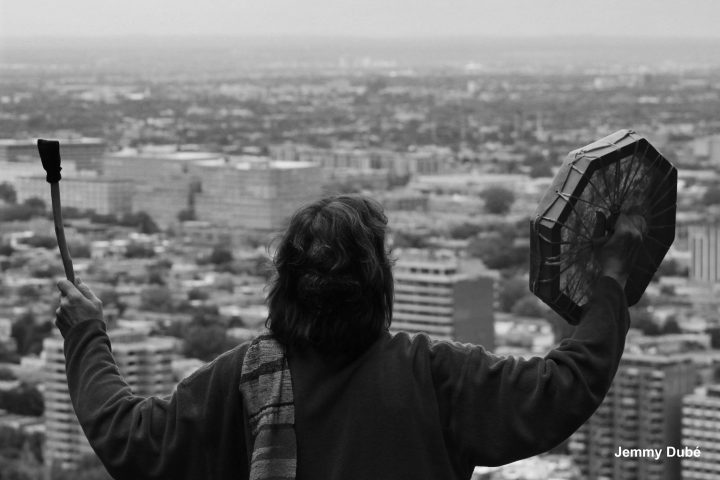The sun has long ago set on the concept of empire as an ethical project for the 21st century. However, the process of decolonization has not yet been completed, even though many countries have their own flag, head of state and constitution, and are full-fledged members of the United Nations. Territorial integrity is not the only marker of independence. This is particularly true in today’s globalized world economy.
The new frontier of decolonization is the freeing of the mind, a task that can only be achieved through struggle, education, art, literature and language. It is no coincidence that strong Indigenous movements throughout the world are claiming a return to indigenous languages, not as a means of shutting themselves off from the modern world, but rather as a key to reclaiming traditional knowledge and understanding of their history. Mukoma Wa Ngugi, Kenyan poet and author, firmly believes that “history moves on, theories of liberation march alongside it, but without our languages we will remain trapped within what literary critic Adam Beach calls the English metaphysical empire.” In recognition of this universal and very rightful longing, the United Nations declared 2019 as the International Year of Indigenous Languages.
Edward Said, highly respected post-colonial theorist, stressed the importance of understanding history, not through the prism of the colonial power, but through the perspective of the hitherto colonized people. Literature plays a very important part in this endeavour. Unfortunately, many post-colonial writers became known only in the language of the former colonial masters. English, Spanish and French are three colonial languages that have produced many highly acclaimed writers. Moreover, many post-colonial writers like Salman Rushdie are claiming not an indigenous perspective, but a cosmopolitan one.
Montréal Serai will continue to provide a forum for marginalized voices, including not only those from former colonies and colonized lands and territories, but also those who defy convention: gender-normative conventions, received notions of what constitutes mental health, criteria for granting citizenship, aesthetic canons, and so forth. In sum, decolonizing voices reflect critical thinkers who happen to be outspoken. In the future we hope to receive and publish submissions from Indigenous-language writers as well as those writing in languages of the colonized, with parallel texts in translation.
Our current issue offers far-ranging interpretations and echoes of our theme.
In her music, films and photographs, Algonquin multidisciplinary artist Marie-Josée Tremblay shares her “heart of hearts” – her innermost experiences as a Métis woman living in the city, seeking solace in urban forests, dreaming her future self in flight.
Artist ekoh dubois explores the “space beyond words” in paintings and complementary poems akin to the Upanishads in India – as he puts it, “a space I created to play hide and seek with the unspeakable, the unknowable.”
Deanna Smith’s poem, “Opening Speech,” offers a searing take on post-slavery decolonization and the search for “what is lost between the soul and the page, the mind and the stage” after being stripped of her ancestors’ languages.
In her personal essay, “Madness Abroad,” Aparna Sanyal delves into what it means for women and men of colour seeking mental health care in the face of depression and the isolation triggered by the “interests of the colonizing West.”
Clayton Bailey comments on the devastating effects of agribusiness on the Manitoba grassland where he was born and reflects on the 2016 shooting death of Colten Boushie, a young unarmed Cree man, by a white farmer. He sees the dispossession of the Indigenous and Métis communities and the settlers’ occupation of this land of grass as “inextricably entwined,” and calls for “a new meeting of minds” in a spirit of respectful cooperation.
Maya Khamala’s poem “Upward Spiral” is a powerful reflection on decolonizing one’s mindset and envisioning the space beyond inherited fear.
Dinh Le Doan resorts to poetry to describe darkness in its various shades.
Ami Sands Brodoff’s short story “Tracks” explores the strains of youth, love and friendship outside traditional gender conventions.
In her poems, Ilona Martonfi empathizes with the “class of non-citizens” made up of migrants fleeing wars.
Louise Carson’s poems challenge what might be described as the patriarchal colonization of women’s bodies, minds and lives.
Scott Weinstein offers a hilarious look at an activist’s imagination as he and his fearless little dog, Liza Minnelli, take on The Man.
In his poem, “My Grandmother’s Recipe,” Greg Santos recounts moments in his Spanish grandmother’s life and her unfulfilled wish to write stories and film scripts – a gentle tribute.
My four book reviews span continents and literary genres: the novel Evening Primrose by Kopano Matlwa, set among patients and doctors in South Africa; Conversations on Writing, a collaborative work by Ursula K. Le Guin with David Naimon on the craft of writing and the importance of “unleashing the imagination to decolonize the mind;” Zebedee Nungak’s collection of essays, Wrestling with Colonialism on Steroids: Quebec Inuit Fight for Their Homeland, examining the history of the Inuit populations in Nunavik and James Bay; and Blackbird Song by Randy Lundy, poems steeped in the spirit of his traditional Cree ancestors.
Special thanks to H. Nigel Campbell and Deanna Radford for helping enlarge our circle of new contributors to Montréal Serai.
+++++++
This issue is dedicated to the memory of Margaret Heap, a lifelong advocate for social justice and peace who died on December 31 in Montréal. Committed to fighting poverty, racism and discrimination in any form, Margaret worked tirelessly and quietly on the sidelines, away from the spotlight. She was trained in history and conscious of all those who, by their unsung labour, are the makers of history. She will be sorely missed.









